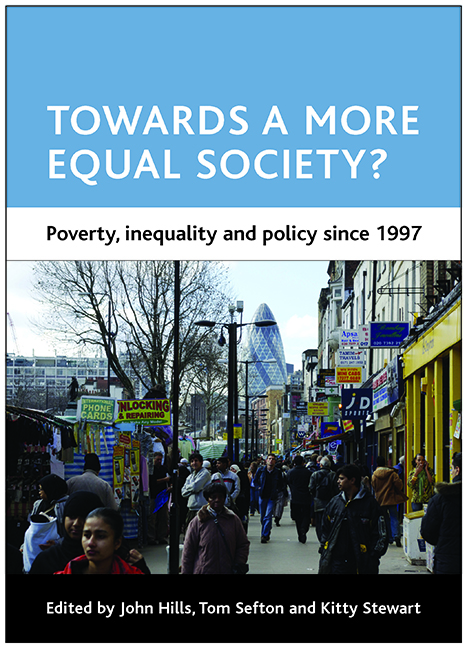fourteen - The Equality and Human Rights Commission: a new point of departure in the battle against discrimination and disadvantage
Published online by Cambridge University Press: 22 January 2022
Summary
Introduction
This chapter examines the programme of equality and human rights reform undertaken by New Labour. The reform programme is evaluated against two benchmarks: (1) Labour's 1997 election manifesto commitments to ‘end unfair discrimination wherever it exists’ and to incorporate the European Convention on Human Rights (ECHR) into domestic law; (2) more far-reaching reform models that view equality and human rights standards as elements of a broader social justice agenda. As well as providing a retrospective analysis of Labour's equality and human rights programme, the chapter has a forward-looking aspect. Increased momentum in the reform programme since 2005 has resulted in a new equality and human rights landscape that provides a distinct point of departure for tackling horizontal inequality and disadvantage. The chapter considers the importance of the arrangements and their potential role in tackling horizontal inequalities during New Labour's third term and beyond.
Overview: New Labour's equality and human rights reform programme, 1997-2008
Equalities and human rights champion Lord Lester recalls that in 1997, when New Labour came to power, there was talk of the need for a Single Equality Act that would provide a comprehensive, integrated and overarching legislative framework for combating discrimination and disadvantage in Britain. There was also talk of the need for a single equality institution – a permanent, independent body with overarching responsibilities for addressing inequality in Britain, with investigative and enforcement powers, that would function as a watchdog and spearhead a process of long-term change – and a similar independent body providing institutional support for human rights. However, while there was talk in 1997, there was an absence of political momentum – either for a Single Equality Act or for an independent single equality and/or human rights institution (Lester, 2003a, 2003b).
Eleven years on, the machinery of equality and human rights regulation in Britain is in the process of being transformed. A Single Equality Act has been included in the government's draft legislative programme for 2008-09, while an independent equality and human rights institution – the Equality and Human Rights Commission (EHRC) – became operational in October 2007. The EHRC replaces the pre-existing strand-based equality bodies and has an overarching mandate to combat inequalities and disadvantage based on a broad range of characteristics (gender, ethnicity, disability, gender, age, religion and belief, transgender and sexual orientation) as well as for protecting and promoting human rights.
- Type
- Chapter
- Information
- Towards a More Equal Society?Poverty, Inequality and Policy since 1997, pp. 293 - 318Publisher: Bristol University PressPrint publication year: 2009



